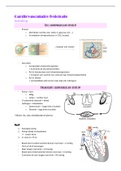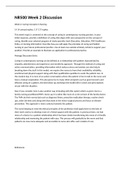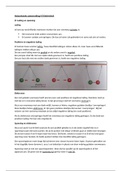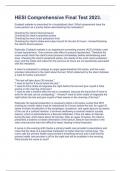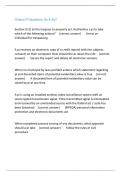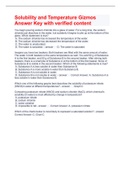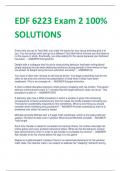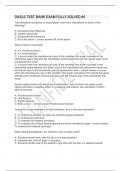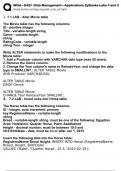Resume
Bloedsomloop, samenvatting (E02Y9A)
- Cours
- Établissement
Samenvatting bloed en bloedsomloop. Bestaat uit powerpoints uit de les, eigen notities en extra informatie uit het boek. Cardiovasculaire fysiologie van prof. Haemers volledig samengevat. Biofysica van prof. Claus ook volledig samengevat + extra plek om oefeningen uit te werken per oefening voorzie...
[Montrer plus]
